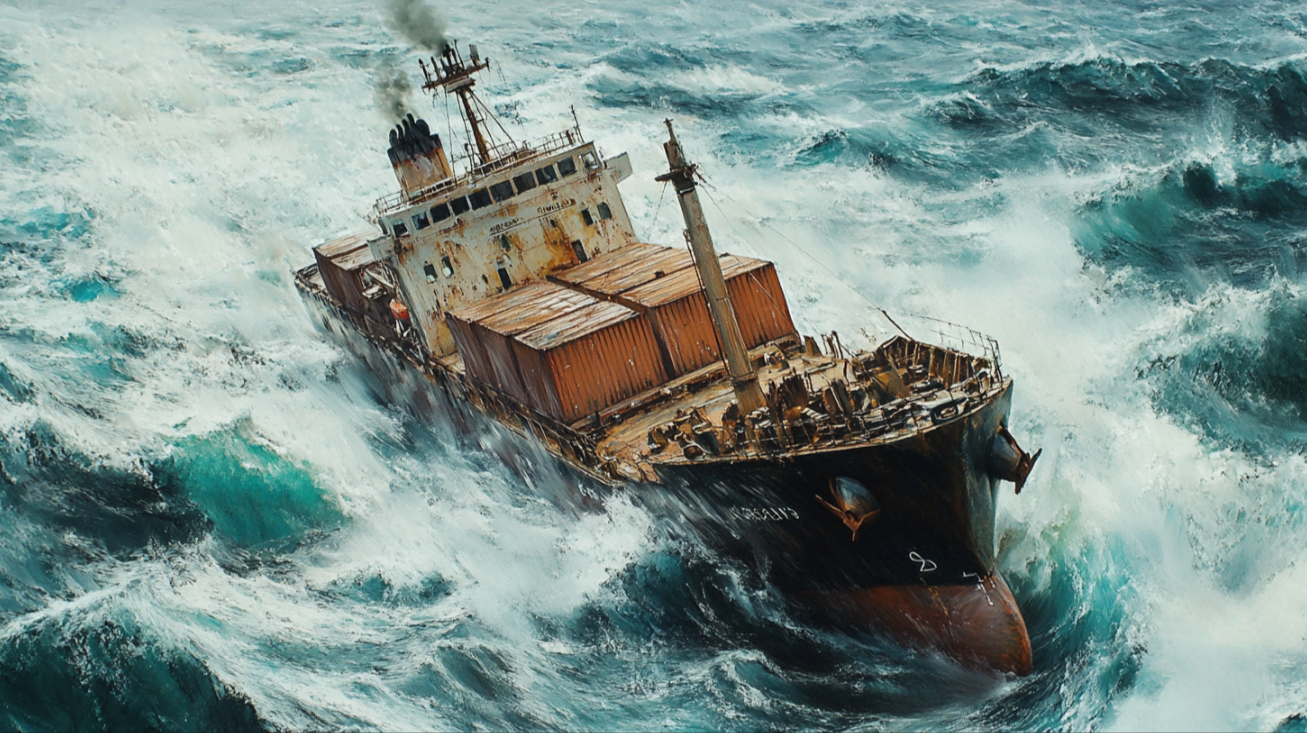Donald Trump has just announced a new round of tariffs. To say that the market didn’t like it is an understatement. It was the worst day in years. Many news organizations are bringing in the “experts” to tell us what’s going to happen.
The Trump team says there will be temporary pain, but markets will adjust, and it will help American workers and rebuild domestic manufacturing. Others predict disaster: prices will spike, industries will collapse, and global trade will reel.
I’m not buying it. Any of it. Not because I have some hidden insight into what’s going to happen, but because throughout my life these macro-economic predictions have had a very bad track record.
The global economy is a massively complex system that’s shaped by millions of decisions made by governments, businesses, and individuals, all reacting to each other in real time. I don’t believe anyone can predict how it will react.
Remember when deficits were supposed to trigger massive inflation?
After the 2008 financial crisis, the U.S. government ran huge deficits and the Federal Reserve engaged in aggressive money printing. A chorus of experts warned that hyperinflation was just around the corner. But it didn’t happen. In fact, the problem for years was that inflation was too low.
Japan has had even bigger deficits for decades and has struggled to create inflation.
We have seen some inflation more recently, but that came after COVID-related supply shocks, energy disruptions, and massive consumer demand. The confident predictions I heard just a few years ago have not come true. Reality is apparently more complicated than predictive models can accommodate.
Remember when high government debt was supposed to crowd out private investment?
That was another piece of economic orthodoxy that didn’t pan out. Interest rates stayed low, investment didn’t dry up, and markets kept humming along. The real world just didn’t match the theory.
The Lucas Critique
I live in Maryland, and I remember when the Maryland legislature thought they would raise money by socking it to the rich. They’d tax yachts, because only evil rich people have yachts. Ha ha. That’ll fix them.
Yacht owners registered their yachts in other states, and yacht builders moved. All the geniuses in Annapolis accomplished was to ruin the yacht market in Maryland and put a lot of people out of work. And they lost tax revenue.
They forgot a very simple and obvious fact. When you swing at someone, they duck.
There’s a fancier name for that. It’s known in economics as the Lucas Critique. The basic idea is this: you can’t predict the effects of a policy change using data from before the policy change — because people adjust.
This same thing will apply to tariffs. Countries, companies, and consumers will adjust, and it’s hard to predict how that will pan out.
Why do we let one man make these decisions?
I’m not trying to defend Donald Trump against his critics. I don’t think Trump can predict what will happen any better (or worse) than anybody else. Also, if higher tariffs are the right way to go, why not ease into them? Why make such a sudden course correction?
A pilot once told me that you use small corrections for small problems and big corrections for big problems. That makes sense, but even if we do have a big problem, that doesn’t mean you make a sudden, big correction when you’re not sure what it will do.
It also bothers me that one man gets to make such consequential decisions. It’s not that I trust Congress. (Only 29% of Americans do, and that’s up from what it was!) It’s that it sounds like something a king would do.
What Happens Next?
The Kiplinger Letter says to prepare for slower growth and higher inflation.
[Trump] is promising short-term pain for long-term gain. We agree on the short term. The long term is murkier.
These tariffs will affect a massively interconnected global system where everyone reacts to everyone else. That’s chaos on steroids. I don’t know if Trump’s tariffs are a good or a bad idea, but they are a gamble, and I don’t believe anyone who claims to know how it will turn out. Macro-economic predictions don’t have a great track record.
The one thing we can be sure of is short-term uncertainty, which will make people cautious. Make of that what you will.
